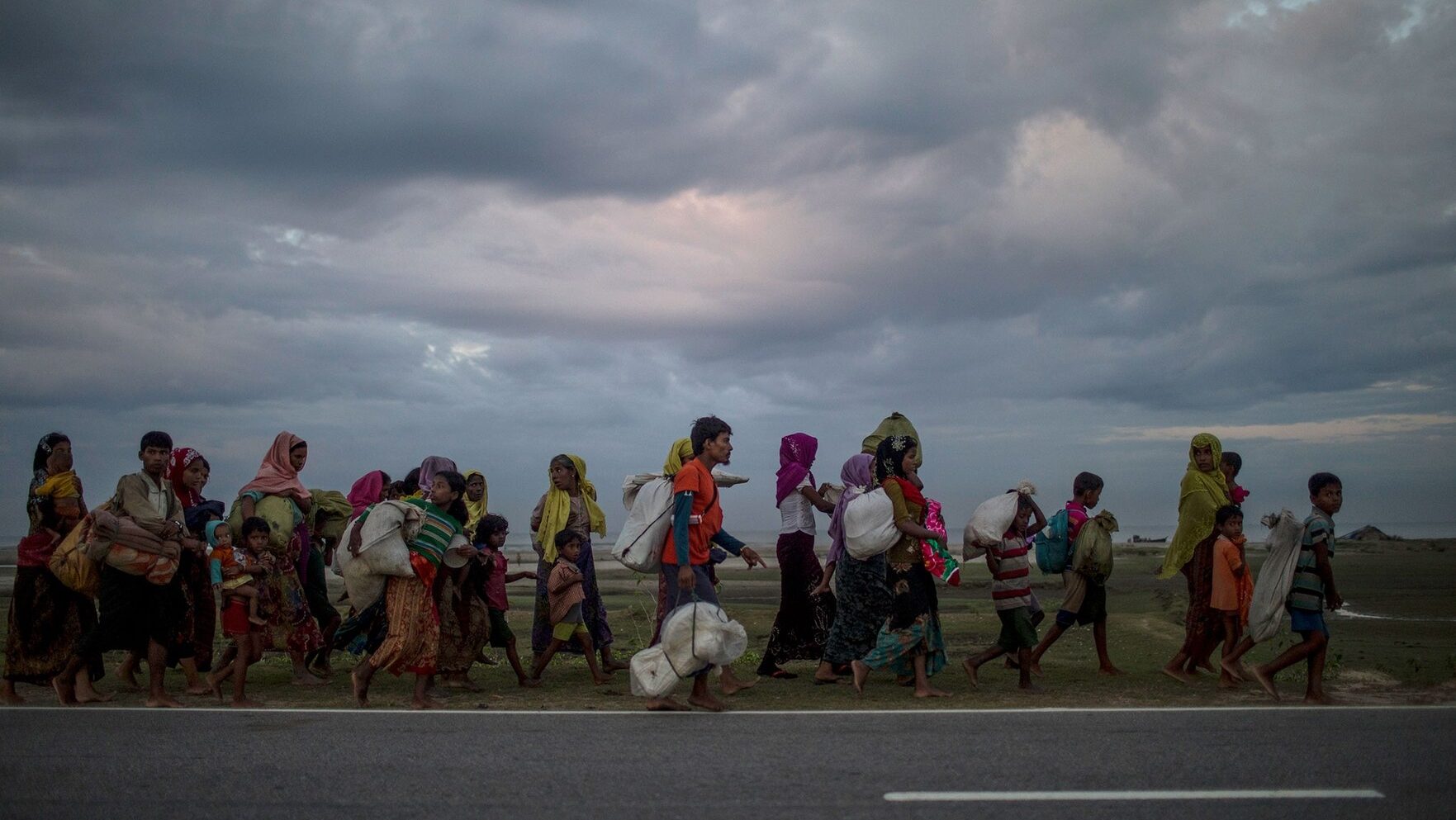By: Keisha Santoso, JC2 Courage

Image credit: John Stanmeyer, NatGeo Image Collection
Humanity does not remain stagnant. They have always travelled to sustain themselves and this inherent need has only been fostered by the development of different means of transport. Entire countries could be built upon immigrants alone. Some would argue that migration does more harm than good to both the host country and the country of origin. This claim stems from the concern for security and the loss of job vacancies. However, there are others who believe that migration serves as a figurative ‘new leaf.’ Immigrants introduce cultural diversity to their host countries while simultaneously creating better lives for themselves. This essay will assess the disadvantages and the advantages of migration in terms of natural security, economic growth, and cultural diversity. ‘Migration’ will refer to the act of moving from one country to another. A ‘host country’ is a country that accepts immigrants, and a ‘country of origin’ refers to the country an immigrant has migrated from.
It cannot be denied that an influx of immigrants can prove to be disadvantageous for both the host and the home countries. Firstly, unity does not often accompany diversity. Oftentimes, there is a clash between people due to different cultural or religious beliefs. The United States of America, a country built upon immigrants, cannot seem to find this promised unity. Due to COVID-19, Asian-American citizens have become a target for racially-fueled hate crimes. Growing hate sentiments and conflicts like this could be life-threatening. Additionally, welcoming immigrants may pose a threat to a host country in the form of susceptibility to terrorist attacks. Some believe that the terrorist attack in Paris during the height of ISIS was made more possible due to France readily accepting Middle-Eastern immigrants. Migration thus proves to be an issue of safety for both immigrants and the citizens of their host country.

Image credit: Roberto Pfeil, AFP / Getty Images
Migration may lead to increased unemployment in the host country and job vacancies in the country of origin. If each citizen were to eventually emigrate for better jobs, what becomes of the economic growth of their country of origin? Too many jobs become vacant, not only stunting the economy but also the production of goods for the country. An influx of immigrants could enkindle a competitive environment in the search for employment. This can leave citizens unemployed, and oftentimes, acts as a catalyst for hate towards these immigrants that have supposedly ‘taken their jobs’ away from them. Thus, migration in the search for better jobs could pose a threat for both countries involved.
However, one cannot deny the wealth of advantages that migration has for host countries and the lives of these migrants. Firstly, migration introduces the affluence of cultural identities to a host country. A country that welcomes ‘outsiders’ eventually becomes a country with open-minded citizens due to exposure to these different cultures. The host country’s citizens may gain knowledge from these immigrants. Evidence of such exchanges is seen in today’s world, where languages are sometimes sewn up as renditions of the different languages of the immigrants that have settled there. One such language is Indonesian, which seems to be a mismatched combination of Sanskrit, Malay, Dutch, and Mandarin. The respective countries either have once colonized Indonesia, are neighbouring countries, or are countries with citizens that often migrate to Indonesia for better lives and job prospects. Migration stirs up a diverse crock-pot of cultures within a host country and thus can be advantageous in its development.
Migration saves many lives by letting immigrants create a new and more fulfilling life than what was possible in their countries of origin. Immigrants are often from countries plagued with conflicts. European countries saw an influx of immigrants from the Middle East in 2016, during their time of conflict. If they were to live their lives in those war-torn areas, they could very easily be caught in the crossfire. Those that choose to emigrate are able to start fresh, potentially having better living conditions for themselves and their families. These immigrants can attain and make a new beginning for themselves, as well as aid the development of their host countries.

Image credit: Jewel Samad/AFP/Getty Images
After assessing both sides of the argument at hand, it cannot be denied that there is a wealth of good that may come from migration, but its potential dangers cannot be overlooked. However, one country cannot isolate itself, devoid of new cultures and identities, as they will never grow as a country. Though it may take decades, we must learn to coexist and make the most of the resources that are provided to us, as it becomes all the more important to do so in this increasingly polarized world.

It’s so easy to follow your posts!” jokerstash